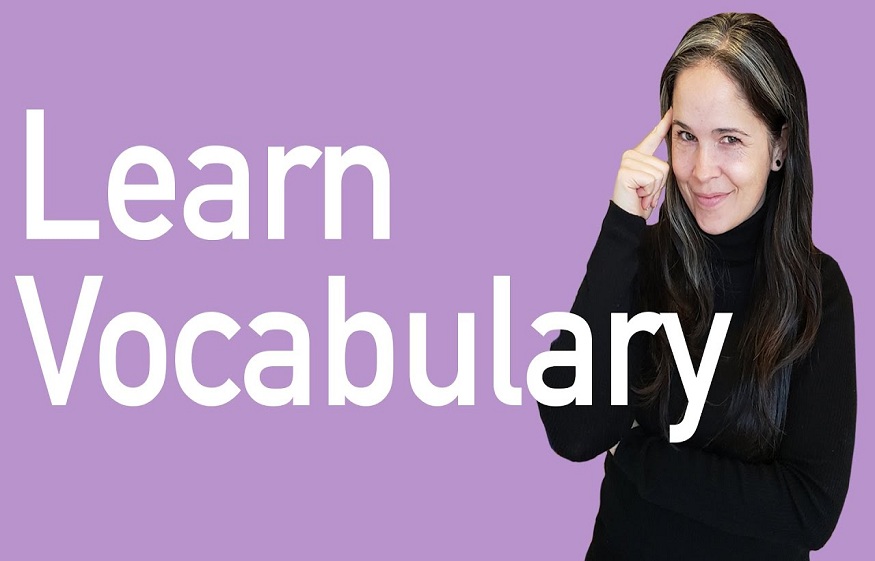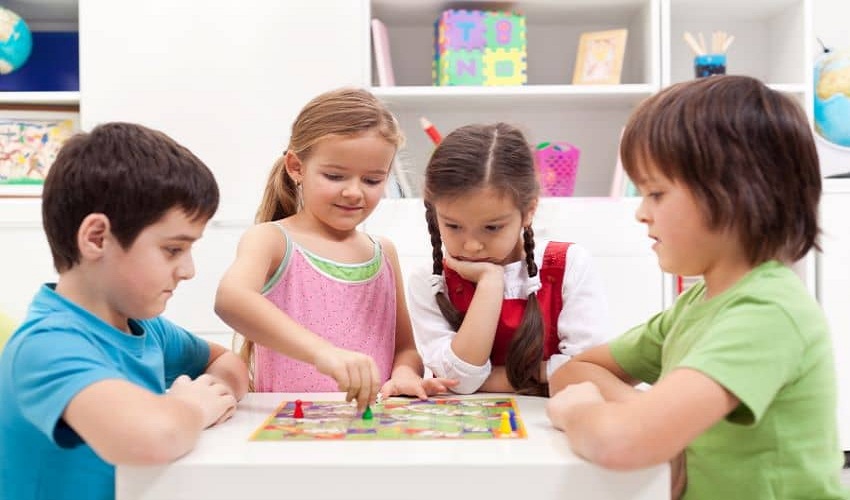How often do you learn new words? One word a day, ten words a day or a few words every week? No matter the number of words you learn, only see to it that you learn some new words every day, their inflections, verb forms and how they are used in sentences. You might learn words based on their functions, number of syllables, length of words, or rhyme. To give you an idea of how you can build your English vocabulary, this article illustrates some ways and also provides a few exercises. Give them a try.
Length of Words
The basic method one can follow would be learning words based on the number of letters in a word. Since the only one-letter words in English are ‘I’ and ‘a’, you can start with two-letter words. They include words such as my, us, we, am, is, do, in, of, to, on, at, me, be, etc. You can then slowly move on to three-letter words, four-letter words, five-letter words and so on. Here, we do not look into the function of the words; we just focus on the number of letters. Go through the following table for some examples of the same.
| Three-letter words | ||||
| The | Can | Car | Her | Sun |
| Hen | For | Cry | Was | Alm |
| Not | End | Fox | Win | And |
| Four-letter words | ||||
| Hire | Give | Into | Sing | Come |
| Bear | Pink | Lend | From | Upto |
| Joke | What | Dare | Feet | Five |
| Five-letter words | ||||
| Stare | Gleam | Dream | Paste | Table |
| Chair | Green | Eight | Blink | Throw |
| Where | Until | Blunt | Mound | Whose |
| Six-letter words | ||||
| Friend | Render | Driver | Delete | Listen |
| Always | Singer | Tiffin | Plight | Slowly |
| Jovial | Really | Binder | Friday | Finger |
| Seven-letter words | ||||
| Grumble | Deeper | Thought | Blender | Quickly |
| Learner | Achieve | Giraffe | Slender | Captain |
| Undergo | Journey | Tuesday | Excited | Diagram |
| Eight-letter words | ||||
| Sprinkle | Pleasant | Security | Cupboard | Patience |
| Portrait | Ambition | Pressure | Thursday | Adjacent |
| Hospital | Opposite | Resident | Interior | Ambience |
Number of Syllables
The second method you can follow is with the number of syllables. A syllable is formed by the combination of a vowel sound and one or more consonant sounds. Based on the number of syllables, words can be categorised as monosyllabic, disyllabic, trisyllabic and polysyllabic words. Let us look at a few examples to understand better.
| Monosyllabic words | ||||
| Do | Am | In | Shut | Run |
| Pick | From | Stick | Done | Week |
| Blue | Neat | For | Sick | Sight |
| Disyllabic words | ||||
| Table | Wonder | Pickle | Unto | Forward |
| Receipt | Singer | Lighten | Enter | Window |
| Patent | Master | Friendship | Winter | Incur |
| Trisyllabic words | ||||
| Wonderful | Absolute | Reporter | Spectator | Wanderer |
| Adventure | Wednesday | Salvation | Politely | Savoury |
| Plentiful | Boundary | Aeroplane | Reserved | Operate |
| Polysyllabic words | ||||
| Intelligent | Hallucination | Information | Comfortable | Inaccessible |
| Curiosity | Conservation | Immediately | Consciousness | Wholeheartedly |
| Environment | Determination | Convenient | Terrestrial | Acquaintance |
Function of Words
Learning words according to functions is a more beneficial method of learning because you do not just learn the words, but their functions, multiple meanings or functions (if any) and their different usages. You can start with naming words, action words, preposition words, linking words, describing words and so on. Go through the following table to learn how this method works.
| Nouns | ||||
| Fan | Dog | Bottle | Chair | Cupboard |
| Vegetable | Money | Knowledge | Ears | Week |
| Patient | Belief | Tyre | Proof | Notebook |
| Pronouns | ||||
| I | He | She | You | We |
| Him | Her | They | Their | Anyone |
| Hers | Mine | Everyone | Nobody | Me |
| Verbs | ||||
| Cut | Prune | Imitate | Write | Sweep |
| Untie | Amputate | Validate | Joke | Speak |
| Groove | Bank | Eat | Open | Rest |
| Adverbs | ||||
| Quickly | Yesterday | Early | Late | Never |
| Rarely | Seldom | Everyday | Instinctively | Simultaneously |
| Upstairs | There | Figuratively | Daily | Annually |
| Adjectives | ||||
| Ample | Weak | Brown | Happy | Bearable |
| Rampant | Wonderful | Excellent | Quick | Soft |
| Kind | Lively | Ambitious | Empathetic | Serene |
| Conjunctions | ||||
| But | And | Or | Yet | So |
| Though | As soon as | Still | Since | Because |
| Therefore | Although | Not only | Thus | For |
| Prepositions | ||||
| In | On | At | Out | In front of |
| Above | Under | Over | Below | Until |
| With | Of | From | About | Between |
| Interjections | ||||
| Oh | Hurray | Ah | Alas | Yippee |
| Wow | Ouch | Yes | No | Whoa |
Rhyme of Words
You can also learn words based on their rhyme. If your method of learning mainly focuses on the phonetic quality of the language, this would be a good way to learn multiple words. Given below is a table with rhyming words. Check it out.
| Set 1 | ||||
| Cat | Mat | Rat | Pat | Fat |
| That | Chat | Hat | Bat | Sat |
| Flat | Splat | Spat | Plat | Tat |
| Set 2 | ||||
| Fly | Ply | Sly | Apply | Ally |
| Imply | Comply | Pry | Tie | Lie |
| Shy | Sigh | My | Why | Dye |
| Set 3 | ||||
| Day | Way | Say | Ray | May |
| Bay | Nay | Hay | Pay | Lay |
| Play | Clay | Slay | Pray | Tray |
| Set 4 | ||||
| Night | White | Plight | Right | Might |
| Sight | Bite | Write | Site | Cite |
| Alight | Tight | Bright | Uptight | Height |
| Set 5 | ||||
| Through | Blue | Flu | Threw | Blue |
| Glue | Imbue | Flew | Rue | Sue |
| New | Few | Dew | View | Clue |
You have now learnt a few different ways to improve vocabulary. Follow whichever suits you and helps you best.





